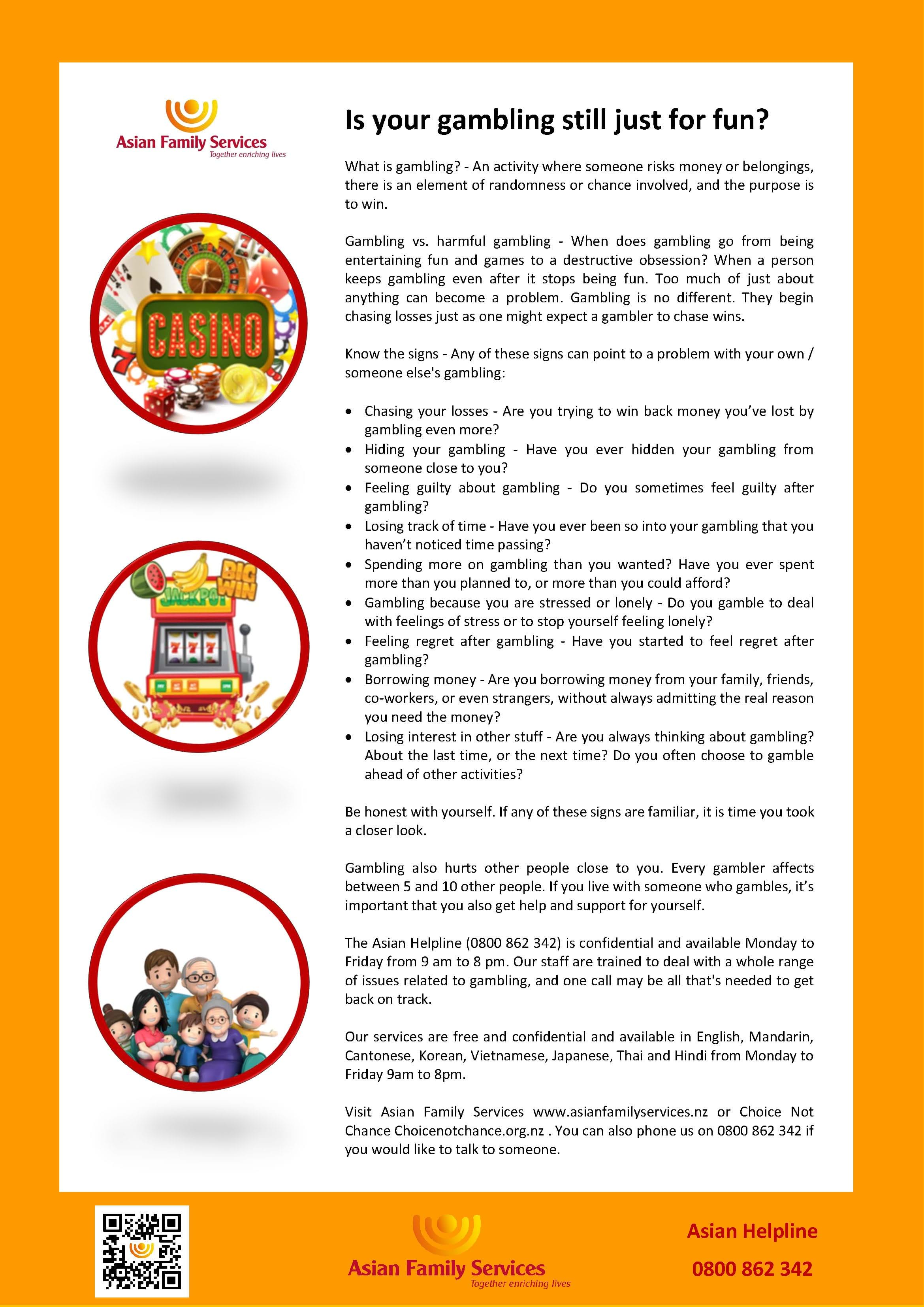Gambling Harm Awareness Week
Gambling Harm Awareness Week evolved from Gamblefree Day which was traditionally held on 1 September.
This year, it will be held 31 August –6 September 2020. The week is designed to encourage community discussions about gambling harm.
Harm from gambling isn’t just about losing money. Gambling can affect self-esteem, relationships, physical and mental health, work performance and social life. It can harm not only the person who gambles but also family, friends, workplaces and communities.
Anyone who gambles – or knows someone who gambles – may be at risk of gambling harm. Harm from gambling starts earlier and occurs more frequently than people may think.
Gambling harm is often hidden, and the impact is not spoken about because it can be sensitive or uncomfortable.
Harmful gambling impacts our family and our communities.
An estimated 37,000 people aged 15 years or older in New Zealand are at high risk of gambling harm or 'problem gamblers', about 47,000 are moderate risk and a further 106,000 are low-risk but will experience gambling-related harm during their lifetime. Every person with a gambling problem affects up to six other people.
Some key facts about Asian gambling
• the Asian community is at greatest - 9.5 times higher compared to other groups, such as Maori, and Pacific
• The Asian population group underuse support services compared with the other ethnic groups. This can be because there is a lack of understanding about the social support that is available to them.
• it is estimated that one in four (24.5%) of moderate risk/problem gamblers are Asian.
Which Asians are at greatest risk of problem gambling?
• Those who are lonely and speak little English. They go to the casino to find others so they can converse in their own language.
• Those working in the food industry.
• Tour guides with large amounts of cash.
• Night shift workers.
• Older Asian early settlers who gamble to get away from family lives.
• Asian women who gamble while their husbands are working in their country of origin.
• Poor (lower income) people who want to try their luck.
• Businessmen who put large amounts on card games and pokies at private clubs.
• International students.
Seeking help
Asian gamblers often try to fix the problem themselves and only seek help as a last resort. Only a small amount of people will seek help themselves as they see problem gambling as a private thing and are ashamed about losing face.
When contacting counselling services, Asian clients are likely to expect their counsellor to be directive or authoritarian and are surprised that this isn’t the case.
This year, AFS is using social media to raise awareness of problem gambling. See the video here
If you need to talk to someone about your own gambling, or a friend or family member’s gambling, please contact the Asian Helpline for free, private and confidential support. Ph 0800 862 342.
www.asianfamilyservices.nz

English video
Chinese video
Korean video
Japanese video
Thai video
Vietnamese video
Hindi video